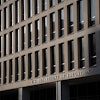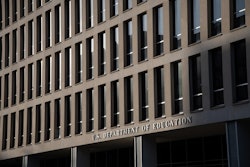Civil Rights Panel: Duplication Threatens Black Colleges
Several states still not compliant with Title VI provisions
By David Pluviose
Predominately White institutions (PWIs) are duplicating programs offered at historically Black colleges and universities, costing the HBCUs money and making it more difficult for them to fulfill their mission of educating disadvantaged minorities, higher education officials told the U.S. Commission on Civil Rights last month.
Panelists at a meeting on the effectiveness of HBCUs in a post-segregation era told the commission, which is charged with monitoring and protecting civil rights, that higher education desegregation and anti-duplication requirements were not being enforced.
“Historically Black colleges are the only group of institutions in this country whose right to exist is questioned daily by members of the public; that is a serious problem,” Jamie P. Merisotis, president of the Institute for Higher Education Policy, told the Commission. “Nobody questions the right of the University of California or community colleges to exist.”
And given the decline in available public resources, and HBCUs’ extensive work with high numbers of underprepared students, these schools are forced to fight a battle for their existence “with one hand tied behind their back,” Merisotis said.
Raymond C. Pierce, dean of the North Carolina Central University School of Law, said the “greatest threat” facing HBCUs is the illegal duplication of existing HBCU programs by nearby predominately White institutions. The duplication leaves HBCU programs largely underfunded, he said, and possibly violates the equal protection provisions of Title VI of the 1964 Civil Rights Act.














